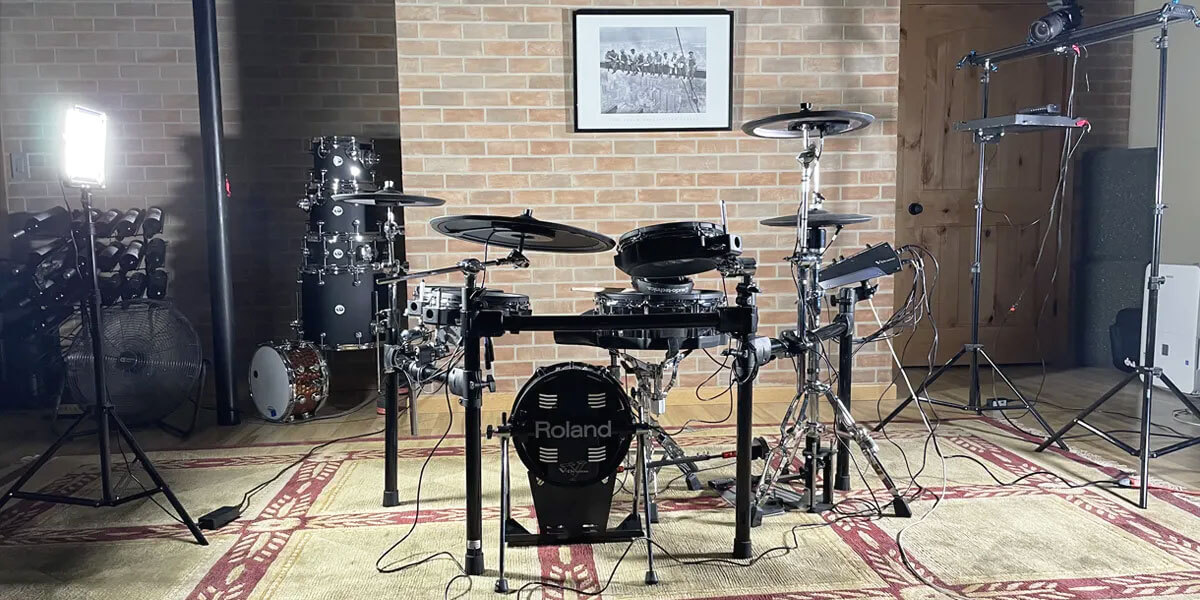Are drums hard to learn? This question often crosses the minds of aspiring musicians intrigued by the rhythmic allure of percussion instruments. Like any musical instrument, drums require dedication, practice, and effort to master. There is no limit to perfection, and the journey of learning drums can be a lifelong pursuit. In this article, we will explore the skills necessary for success in drumming and shed light on the challenges and rewards of embarking on this musical adventure. So, let’s dive into the world of drums and discover the path to becoming a skilled drummer.
Skills for drumming success

I can’t directly answer your potential question, “Are drums easy to learn” because learning to play the drums requires a combination of personal skills and qualities. While each individual’s journey is unique, here are 5 important personal skills that you can develop to enhance your drumming experience:
- Rhythm. Having a natural sense of rhythm or the ability to develop rhythm is a fundamental skill for drummers.
- Coordination. Drumming involves the simultaneous coordination of different limbs. Developing hand and foot coordination and independence is critical.
- Focus and concentration. Drumming requires focus and concentration to maintain a steady rhythm, execute complex patterns, and stay in sync with the music.
- Physical fitness and endurance. Drumming can demand physical exertion, strength, endurance, and agility.
- Passion and perseverance. Learning any instrument requires dedication and a passion for music.
Basic drumming techniques
At the beginning of your drumming journey, it is important to focus on mastering the basic drumming techniques. These foundational techniques serve as building blocks for more advanced drumming skills. Here are 6 important basic drumming techniques to focus on:
| Techniques | Description |
|---|---|
| Drumstick Grip | Learning proper drumstick grip is essential for control and technique. The most common grips include matched grip (holding both sticks the same way) and traditional grip (where one stick is held differently). Experiment with different grips to find the one that feels comfortable and allows for fluid motion. |
| Hand Technique | Developing good hand technique involves wrist and finger control. Practice using the rebound of the drumstick to generate sound, utilizing both wrists and fingers for different strokes and accents. Proper hand technique helps with speed, precision, and endurance. |
| Bass Drum Technique | Mastering the bass drum technique involves using the foot pedal to produce a solid and consistent sound. Practice the heel-toe or slide technique to achieve clarity and speed in your bass drumming. |
| Snare Drum Technique | The snare drum is the centerpiece of drumming, and mastering its techniques is crucial. Work on executing various snare drum strokes, including rimshots, ghost notes, and cross-sticking, to add depth and dynamics to your playing. |
| Cymbal Technique | Cymbals add color and texture to drumming. Learn techniques such as crashing, riding, and choking the cymbals to create different sounds and accents. Develop control and precision in striking the cymbals to achieve desired tonal qualities. |
| Drum Rudiments | Drum rudiments are fundamental patterns that help build technique and coordination. Focus on practicing rudiments like single-stroke roll, double-stroke roll, paradiddles, and flams. These rudiments serve as building blocks for more complex drumming patterns. |
By dedicating time to mastering these basic drumming techniques, aspiring drummers can lay a strong foundation for their musical journey. Remember to start slowly and focus on accuracy and control before gradually increasing speed and complexity. With consistent practice and a willingness to learn, you’ll develop the skills necessary to tackle more advanced drumming styles and repertoire.
Best age to start learning drums

While there is no specific age at which every individual is physically ready to start learning drums, a general rule of thumb is that children between the ages of 7 and 10 usually possess sufficient physical coordination and strength to begin learning the basics.
The following physical skills should be developed before starting lessons:
- Motor skills – Drumming requires precise control of hands, arms, and feet.
- Hand and arm strength – Drumming involves repetitive motions and requires a certain level of hand and arm strength.
- Foot pedal control – Proper control of the bass drum pedal and hi-hat pedal requires coordination, balance, and leg strength.
How long does it take to reach an average drumming level?
The time it takes to reach an average drumming level can vary depending on several factors, including individual dedication, practice routine, natural abilities, and previous musical experience. Here are some considerations to address the question “Is it hard to learn drums?” and keep in mind:
- Practice time. Consistent practice, even for shorter periods each day, can be highly effective in making drums easy to learn.
- Musical experience. If you don’t have previous musical experience, such as knowledge of rhythm or playing another instrument, playing drums can be hard.
- .
- Instruction and guidance. Access to quality instruction and recommendations from a qualified drum teacher or online lessons can greatly expedite progress.
- Learning style and abilities. Everyone has a unique learning style and musical aptitude. Some individuals may grasp drumming principles faster, while others may take more time to develop their skills.
On average, with consistent practice and diligence, beginners can expect to reach an average level within one to two years. At this stage, drummers can comfortably play basic beats, fills, and grooves and have a solid foundation in fundamental drumming techniques.












